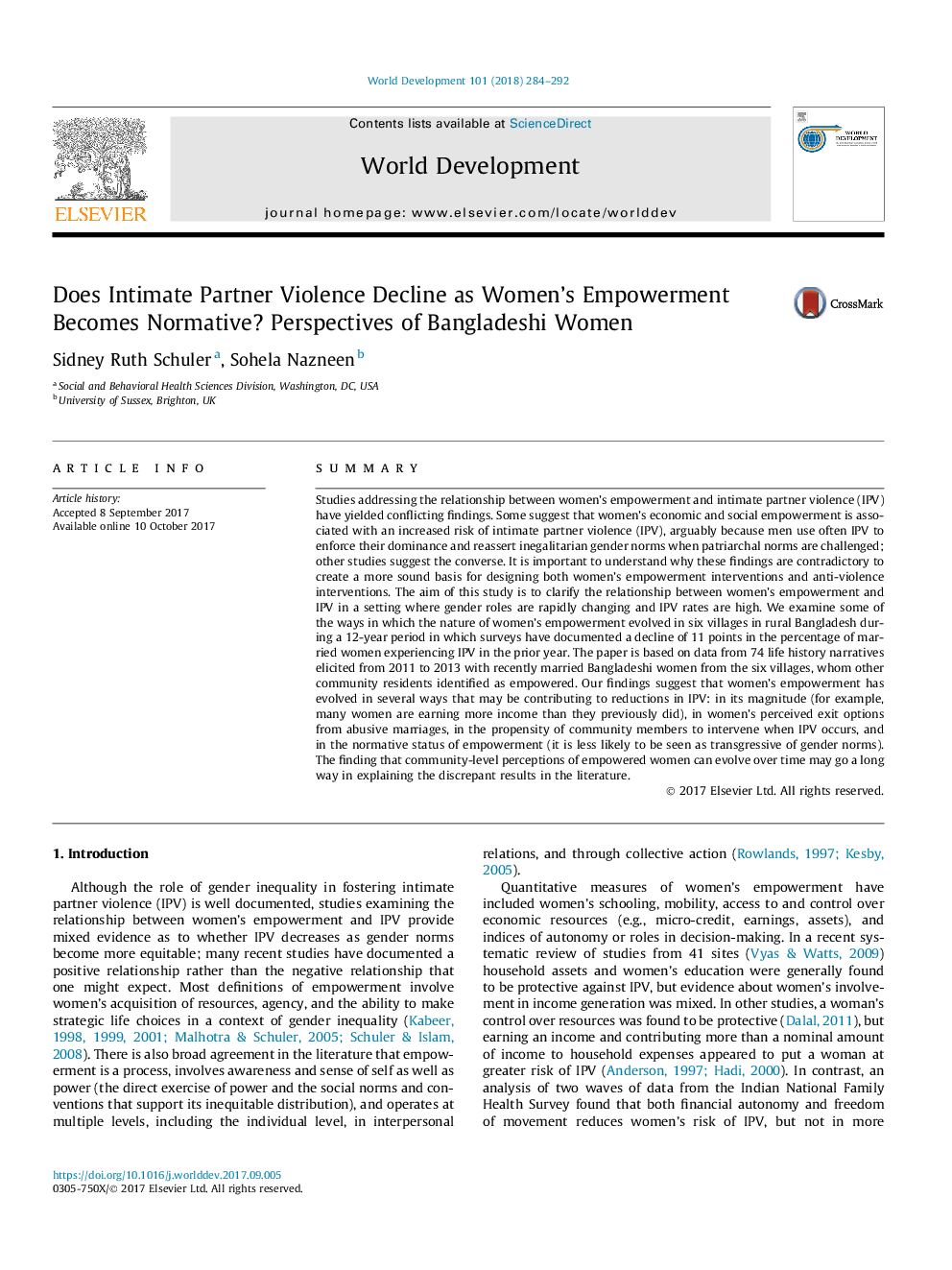| کد مقاله | کد نشریه | سال انتشار | مقاله انگلیسی | نسخه تمام متن |
|---|---|---|---|---|
| 5105000 | 1481117 | 2018 | 9 صفحه PDF | دانلود رایگان |
- Evidence regarding the relationship between women's empowerment and intimate partner violence is generally inconclusive.
- In a conceptual framework resolving this contradictory evidence, empowerment evolves from “incipient” to “normative”.
- Qualitative evidence suggests the nature of women's empowerment evolves over time.
- IPV appears to decrease when women's empowerment becomes normative.
SummaryStudies addressing the relationship between women's empowerment and intimate partner violence (IPV) have yielded conflicting findings. Some suggest that women's economic and social empowerment is associated with an increased risk of intimate partner violence (IPV), arguably because men use often IPV to enforce their dominance and reassert inegalitarian gender norms when patriarchal norms are challenged; other studies suggest the converse. It is important to understand why these findings are contradictory to create a more sound basis for designing both women's empowerment interventions and anti-violence interventions. The aim of this study is to clarify the relationship between women's empowerment and IPV in a setting where gender roles are rapidly changing and IPV rates are high. We examine some of the ways in which the nature of women's empowerment evolved in six villages in rural Bangladesh during a 12-year period in which surveys have documented a decline of 11 points in the percentage of married women experiencing IPV in the prior year. The paper is based on data from 74 life history narratives elicited from 2011 to 2013 with recently married Bangladeshi women from the six villages, whom other community residents identified as empowered. Our findings suggest that women's empowerment has evolved in several ways that may be contributing to reductions in IPV: in its magnitude (for example, many women are earning more income than they previously did), in women's perceived exit options from abusive marriages, in the propensity of community members to intervene when IPV occurs, and in the normative status of empowerment (it is less likely to be seen as transgressive of gender norms). The finding that community-level perceptions of empowered women can evolve over time may go a long way in explaining the discrepant results in the literature.
Journal: World Development - Volume 101, January 2018, Pages 284-292
